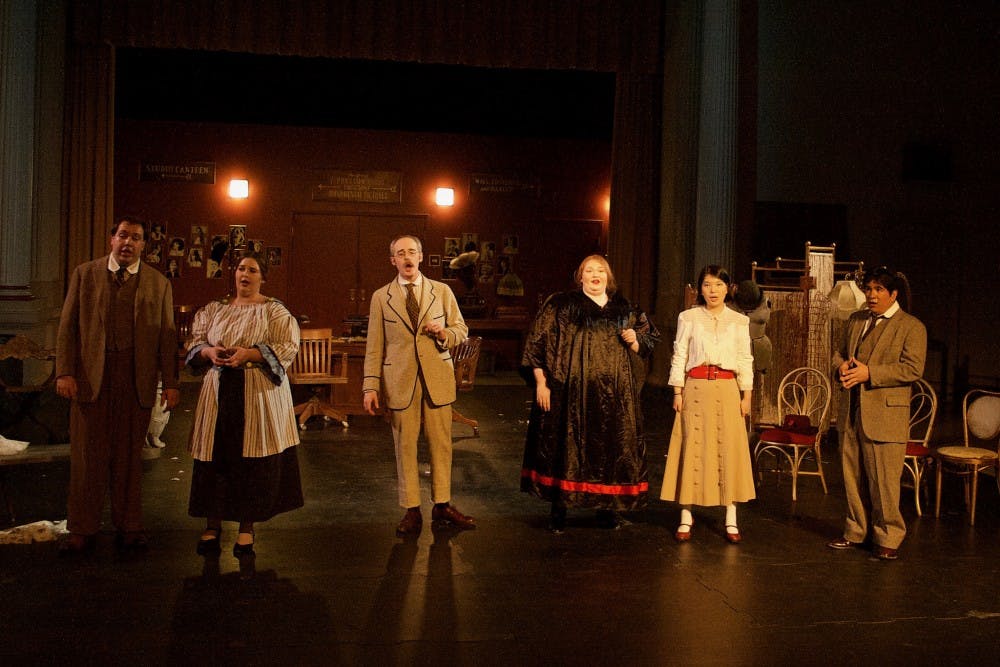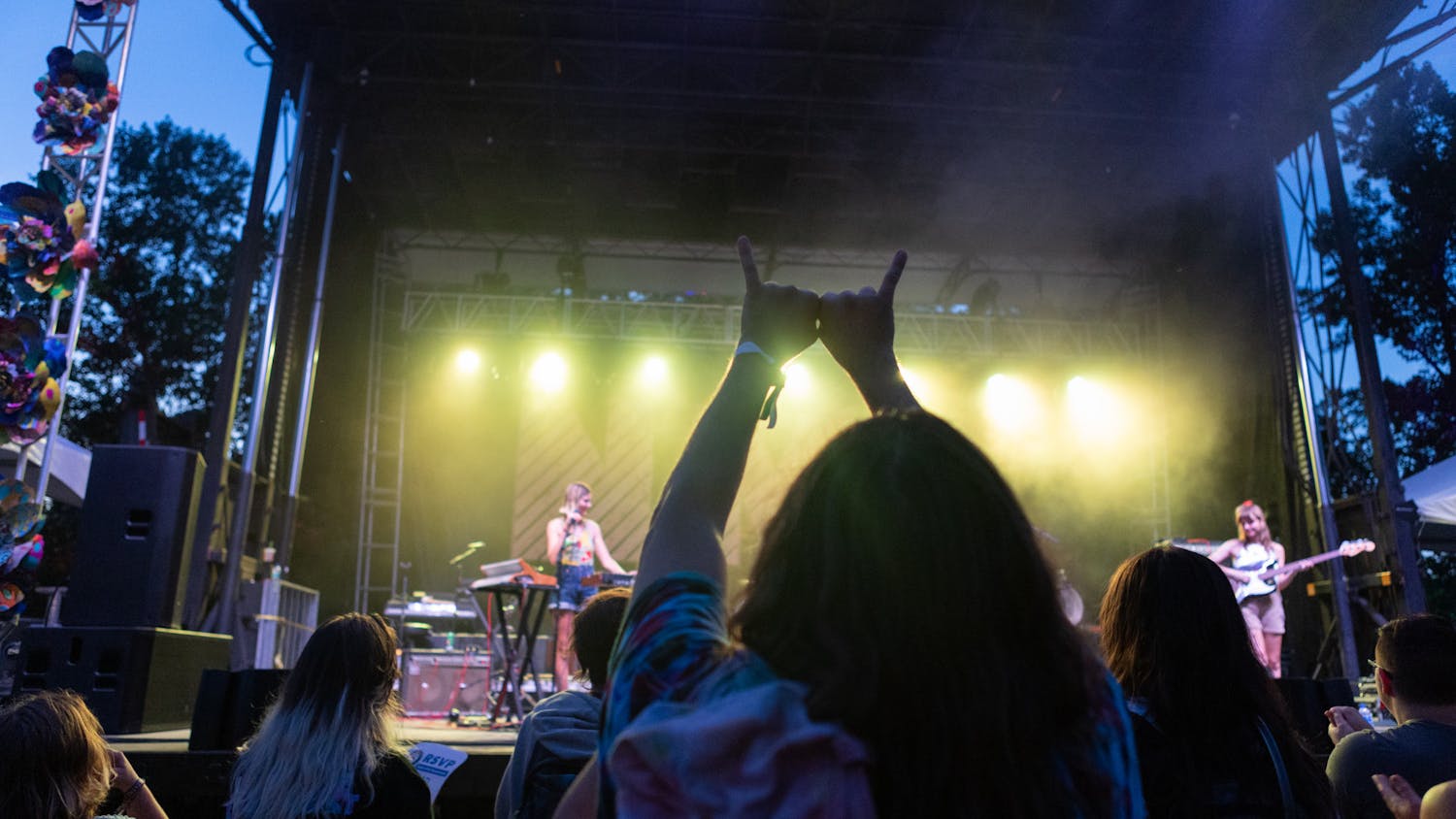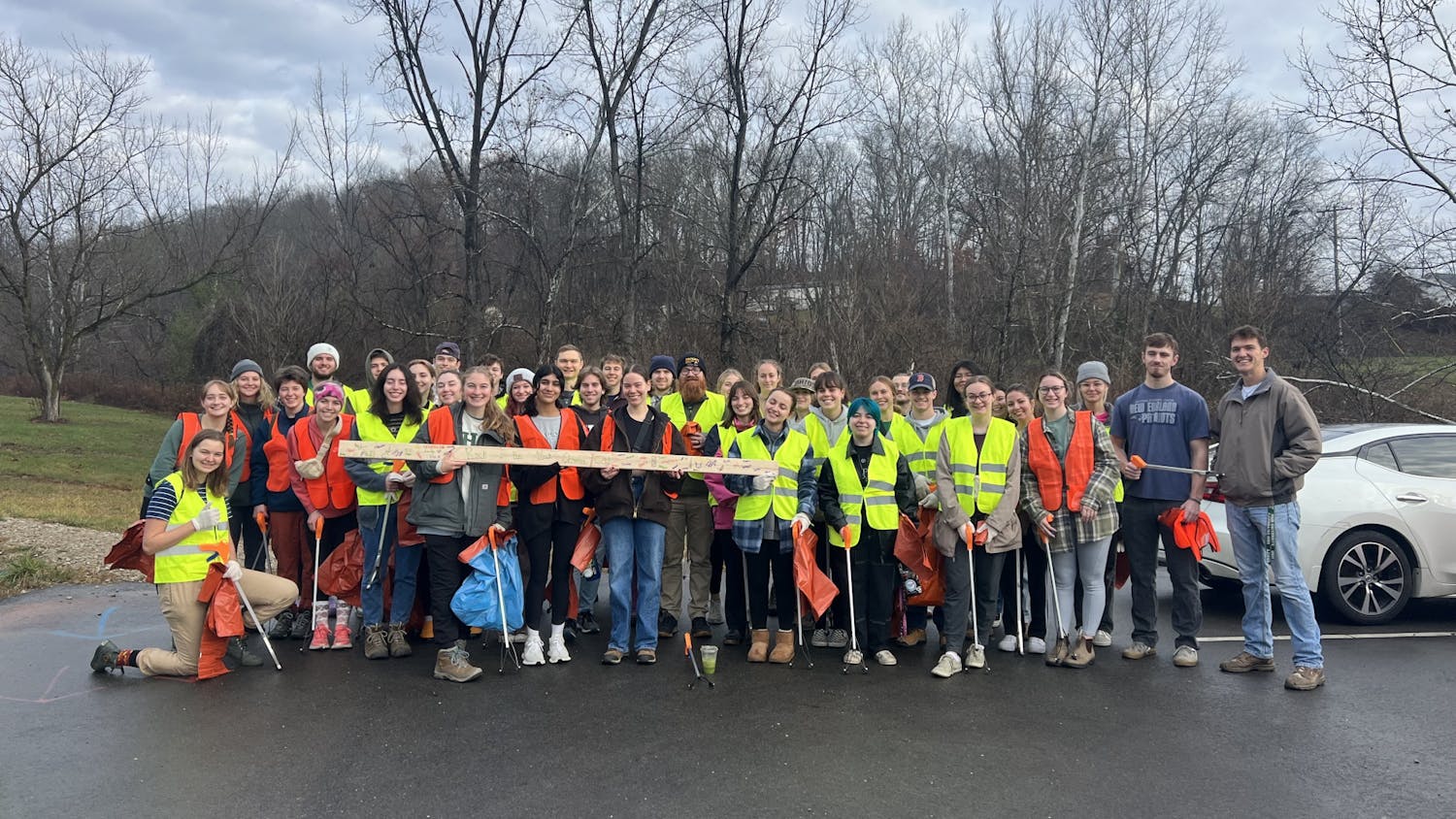While opera may have roots going back centuries, many young people still take interest in the style of singing.
Operas, a combination of acting and singing, have been around since the early 17th century. They aim to show emotion and drama while the performers sing in different languages.
“An opera is lyrical stage work,” Margaret Kennedy-Dygas, a professor of voice, music theory and music literature, said. Kennedy-Dygas sang professionally for 30 years, some of which included opera.
The roots of opera are from Europe, Kennedy-Dygas said. The productions go as far back as the early 1600s.
Opera helped create different forms of performances, including musical theater.
“(Opera) is a staged work where all of the communication is done with singing instead of talking,” Tyler Thress, a senior studying music and anthropology, said.
In many current popular music styles, singers use the lower parts of their voices. In opera, the singers use the higher parts of their voices to carry the sound better.
Opera singers have to go through vocal training for years, Kennedy-Dygas said. They also do not perform as often as pop singers because of how much athletic ability it takes to sing an entire opera.
“Being a famous opera singer is like being picked for the NBA,” Kennedy-Dygas said. “They tend to be singers who have the gift of the voice.”
Only a small fraction of singers are able to sing opera because of the intense training of the higher register of the voice, and there are not as many opera houses left.
Unlike Kennedy-Dygas, Thress believes that anyone can be an opera singer.
“There is this misconception that only certain people can and should sing opera,” Thress said.
Gabby Romeo, a junior studying psychology, saw opera in the Teatro dell’Opera di Roma while studying abroad in Italy. Romeo is especially interested in operas because she speaks Italian, which is a language operas are often sung in.
“(Being able to sing opera) is one of the coolest abilities a human being can be capable of,” Romeo said.
Along with training singers to be able to perform such demanding shows, another constraint of opera is the high cost of staging one.
“One of the things that affects where operas are is the economy,” Kennedy-Dygas said.
In 2013, the average ticket for an opera at the Metropolitan Opera in New York City was $174. It can cost millions of dollars to produce an opera.
Although many people believe opera is slowly fading away, Kennedy-Dygas believes that is not the case at all.
“The genre is doing OK compared to what it is up against,” Kennedy-Dygas said.
Kennedy-Dygas recently went to an opera where the words were translated to English and projected on screen. She believes that kind of technology is what keeps people coming back.
Thress believes there are a lot of misconceptions when it comes to how people view operas.
“I think if (people) were aware of how opera is actually performed in the real world, then they would take an interest,” Thress said. “It’s not all fat tenors and powdered wigs.”
Thress emphasized how opera has changed over the years and how it has evolved for the modern times.
“People who are off-put by opera have not found a way to tell the stories that resonate with them,” Thress said.
Smaller opera houses that are more aligned with the spirit of opera rather than the rules are doing better, and the old rules and conventions are what scare people away from attending the opera, Thress said.
“At the end of the day, opera is just storytelling,” Thress said.






